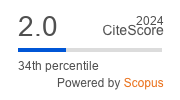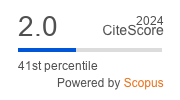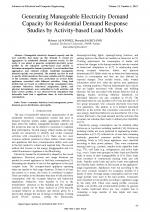| 1/2021 - 11 | View TOC | « Previous Article | Next Article » |
Generating Manageable Electricity Demand Capacity for Residential Demand Response Studies by Activity-based Load ModelsSONMEZ, M. A. |
| Extra paper information in |
| Click to see author's profile in |
| Download PDF |
Author keywords
consumer behavior, load management, power demand, power distribution, smart grids
References keywords
energy(21), buildings(13), jenbuild(9), domestic(9), electricity(8), modeling(7), model(6), demand(5), consumption(5), building(5)
Blue keywords are present in both the references section and the paper title.
About this article
Date of Publication: 2021-02-28
Volume 21, Issue 1, Year 2021, On page(s): 99 - 108
ISSN: 1582-7445, e-ISSN: 1844-7600
Digital Object Identifier: 10.4316/AECE.2021.01011
Web of Science Accession Number: 000624018800011
SCOPUS ID: 85102815185
Abstract
Manageable electricity demand capacity and the user activities that make up this demand is crucial for aggregators in residential demand response events. In this study, it was aimed to generate residential electricity power profiles by the enhanced activity-based load models to determine manageable demand potential. A novel method that aggregators may estimate realistic residential manageable demand capacity was presented. The method can also be used to specify which incentives that cause suitable activity changes of the consumer. Studies were performed on several home appliances associated with different activities. Using load models that are based on collected energy consumption data, consumer behaviors, behavioral adaptations, habits, and physical determinants were embedded in both activities and loads' power profiles. It was observed from simulations that deferrable loads had a significant share in total electricity consumption. |
| References | | | Cited By |
Web of Science® Times Cited: 4 [View]
View record in Web of Science® [View]
View Related Records® [View]
Updated 2 weeks, 5 days ago
SCOPUS® Times Cited: 4
View record in SCOPUS® [Free preview]
View citations in SCOPUS® [Free preview]
[1] A New CNN-Based Method for Short-Term Forecasting of Electrical Energy Consumption in the Covid-19 Period: The Case of Turkey, Atik, Ipek, IEEE Access, ISSN 2169-3536, Issue , 2022.
Digital Object Identifier: 10.1109/ACCESS.2022.3154044 [CrossRef]
[2] The impact of mutual interaction between electric and water distribution systems via demand response, Bagriyanik, F.G., Sonmez, M.A., Bagriyanik, M., Sustainable Energy, Grids and Networks, ISSN 2352-4677, Issue , 2023.
Digital Object Identifier: 10.1016/j.segan.2023.101008 [CrossRef]
[3] Research on a Hierarchical Optimal Control Algorithm, Zhang, Yuanmin, Jiang, Zhu, Lu, Junfeng, 2022 17th International Conference on Control, Automation, Robotics and Vision (ICARCV), ISBN 978-1-6654-7687-4, 2022.
Digital Object Identifier: 10.1109/ICARCV57592.2022.10004280 [CrossRef]
Disclaimer: All information displayed above was retrieved by using remote connections to respective databases. For the best user experience, we update all data by using background processes, and use caches in order to reduce the load on the servers we retrieve the information from. As we have no control on the availability of the database servers and sometimes the Internet connectivity may be affected, we do not guarantee the information is correct or complete. For the most accurate data, please always consult the database sites directly. Some external links require authentication or an institutional subscription.
Web of Science® is a registered trademark of Clarivate Analytics, Scopus® is a registered trademark of Elsevier B.V., other product names, company names, brand names, trademarks and logos are the property of their respective owners.
Faculty of Electrical Engineering and Computer Science
Stefan cel Mare University of Suceava, Romania
All rights reserved: Advances in Electrical and Computer Engineering is a registered trademark of the Stefan cel Mare University of Suceava. No part of this publication may be reproduced, stored in a retrieval system, photocopied, recorded or archived, without the written permission from the Editor. When authors submit their papers for publication, they agree that the copyright for their article be transferred to the Faculty of Electrical Engineering and Computer Science, Stefan cel Mare University of Suceava, Romania, if and only if the articles are accepted for publication. The copyright covers the exclusive rights to reproduce and distribute the article, including reprints and translations.
Permission for other use: The copyright owner's consent does not extend to copying for general distribution, for promotion, for creating new works, or for resale. Specific written permission must be obtained from the Editor for such copying. Direct linking to files hosted on this website is strictly prohibited.
Disclaimer: Whilst every effort is made by the publishers and editorial board to see that no inaccurate or misleading data, opinions or statements appear in this journal, they wish to make it clear that all information and opinions formulated in the articles, as well as linguistic accuracy, are the sole responsibility of the author.



